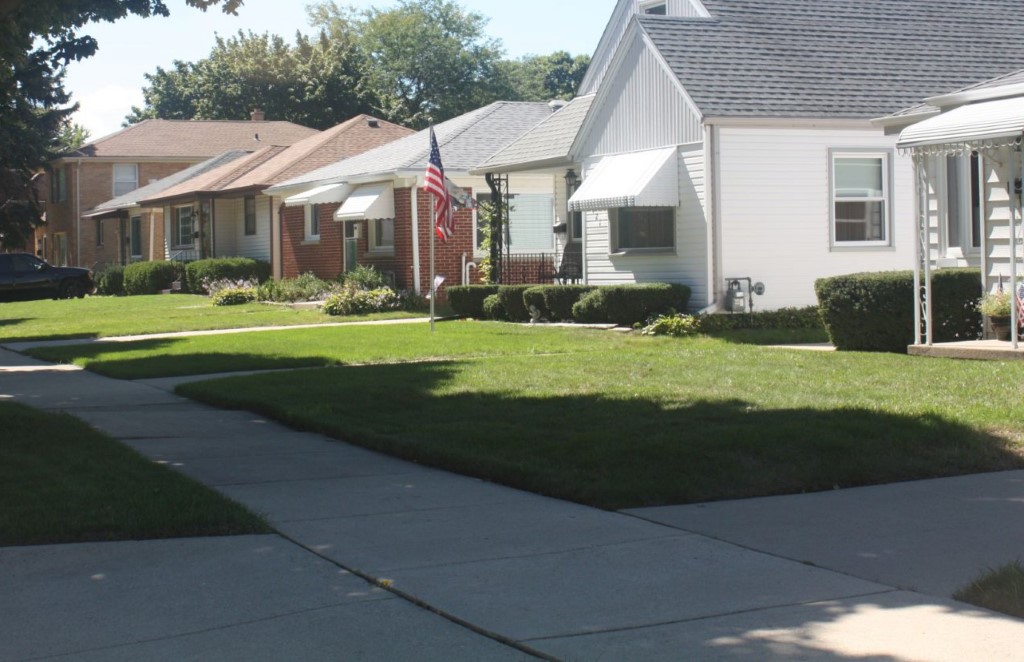Should Single-Family Zoning be Eliminated?
All the city news you can use.
Want more links to read? Visit The Overhead Wire and signup. Every day at The Overhead Wire we sort through over 1,500 news items about cities and share the best ones with our email list. At the end of the week, we take some of the most popular stories and share them with Urban Milwaukee readers. They are national (or international) links, sometimes entertaining and sometimes absurd, but hopefully useful.
15 Mind-Blowing Bike Projects: The new Bicycle Architecture Biennale, which opened in Amsterdam on Monday, is highlighting different transformative bike projects from around the world. As you might expect from the Netherlands, four of the projects are from the bike-obsessed country. This triumph in battling car culture, however, is also seen elsewhere in the world. In Xiamen, a five-mile aerial bike path, the longest in the world, has 11 exits to transit hubs and more than 2,000 bikes an hour at peak times. At a university in Perth, a bike hub has 200 parking spaces with showers and locker rooms to make cycling more convenient for students. (Adele Peters | Fast Company)
US Questions Single-Family Housing: As crises mount over housing affordability, climate change, and racial inequality, many cities are calling for a reformation of single-family zoning. The current regulations are strict: nationwide, it is illegal on 75% of residential land to build anything other than detached single-family homes. If considering just suburbs or newer Sun Belt cities, that figure is much larger. Fortunately, Oregon this month will consider a law that would end zoning exclusively for single-family homes. Last December, Minneapolis City Council voted to end single-family zoning citywide. The current makeup of different cities is staggering; while only 15% of residential land is zoned for detached single-family homes, the figure reaches 75% in Los Angeles and even as high as 94% in San Jose. (Emily Badger and Quoctrung Bui | New York Times)
Why Millennials Can’t Buy Homes: The narrative is common: places where real estate is cheap do not have many good jobs, but places with many jobs, primarily coastal cities, have witnessed chaotic real estate markets. With the median income in Los Angeles, it would take 43 years to save up for a down payment for a home. In San Francisco and New York, those figures are 40 and 36, respectively. Only Detroit, at seven years, was under the national average from 1975. This has begun to show housing as generational warfare, where young prospective buyers are blocked by older buyers who have seen their equity stakes grow favorably. Housing supply is the most obvious cause, but other compounding factors, like historically racist housing policies and outdated property tax laws, broaden the housing burden on millennials. (Alexis C. Madrigal | The Atlantic)
Should Ft. Worth Transit Keep $90M: Trinity Metro extended its TEXRail commuter train service to Forth Worth’s medical district and stayed $90M under budget. Metro president Bob Baulsir stated that this extra funding, about half of which is federal, is enough to cover roughly percent of extending the line another two miles. While unspent federal funding typically goes back to the pot to be allocated to other cities, Fort Worth wants to keep the money to continue its transit development. The North Central Texas Council of Governments will cover Baulsir’s request to keep the funding in their regular monthly meeting this week. (Gordon Dickson | Forth Worth Star-Telegram)
Billions Pumped Into Unbuilt Suburbs: Walton Group, a Calgary-based real estate firm, sold the idea to investors of putting in roughly $10k or more apiece in rural properties outside fast-growing cities like Phoenix and Atlanta. $3.8B, 92,000 investors, and 106,000 acres later, the expected sprawl, and thus the returns, have not happened yet. The dilemma demonstrates the risks of land speculation years in advance of development. A majority of more than 300 Walton land projects are delayed, often years past when investors expected a payoff. (Michael Sasso | Bloomberg)
Quote of the Week
Suburbs aren’t particularly American. Cities throughout history have had suburbs. Ancient Rome had suburbs. Archaeologists have found evidence of suburbanization around Ur and ancient cities in the Americas had suburban areas as well.
–Amanda Kolson Hurley in Mother Jones talking about some of the contents of her book, Radical Suburbs.
This week on the podcast, Martiza Pechin talks about planning and transportation changes in Richmond Virginia
Want more links to read? Visit The Overhead Wire and signup. (http://dtrnsfr.us/2iA8Yas)
Urban Reads
-
Congestion Pricing Cuts Air Pollution in New York City
 Dec 14th, 2025 by Jeff Wood
Dec 14th, 2025 by Jeff Wood
-
We Think We Love to Drive. But Do We Really?
 Dec 7th, 2025 by Jeff Wood
Dec 7th, 2025 by Jeff Wood
-
Can Scott Wiener Tackle America’s Housing Crisis?
 Nov 23rd, 2025 by Jeff Wood
Nov 23rd, 2025 by Jeff Wood






















